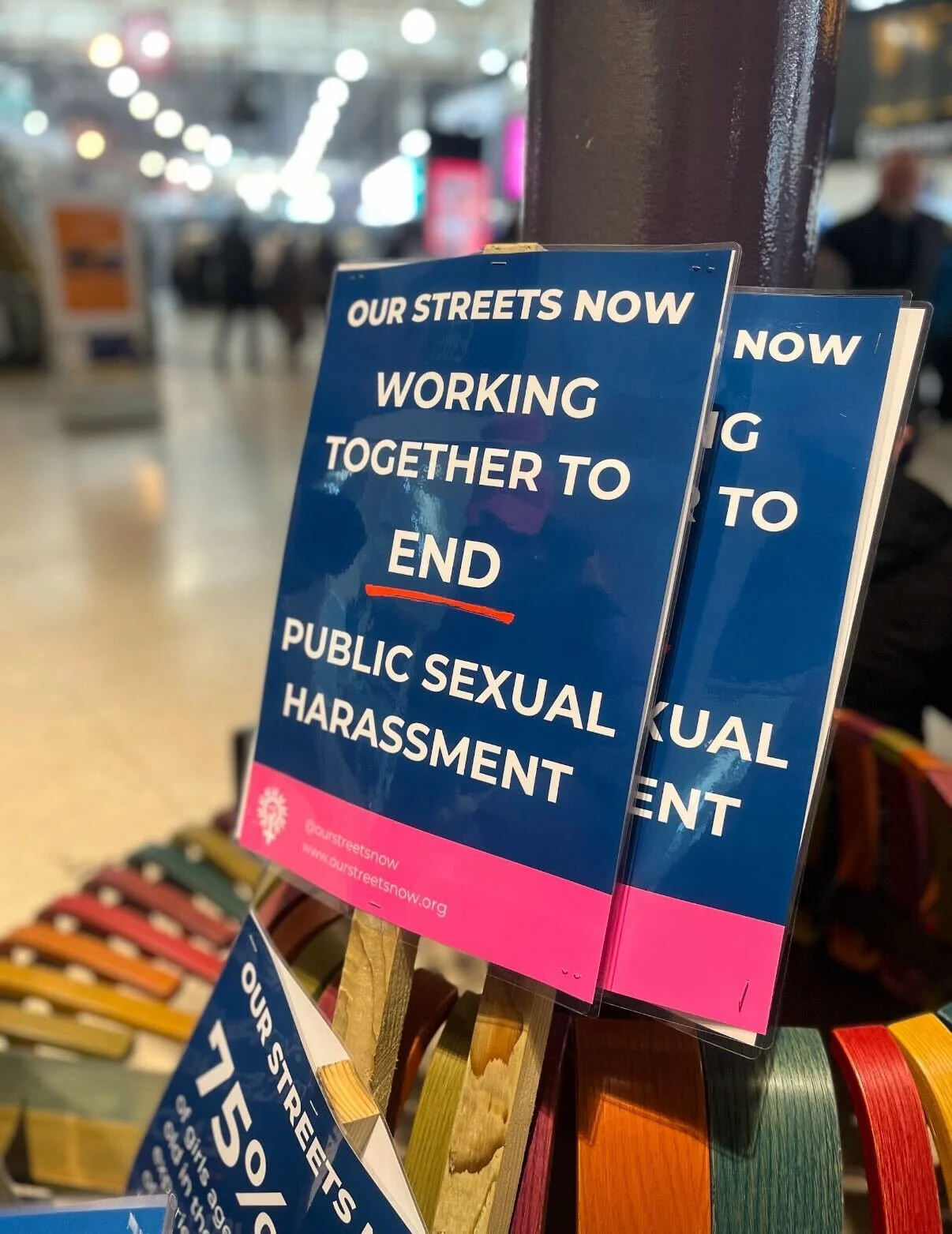What is Public Sexual Harassment?
Public Sexual Harassment, also known as PSH, comprises any unwelcomed and unwanted attention, sexual advances or intimidating behaviour that occurs in public spaces, both in person and online.
This includes catcalling, wolf whistling, sexualised comments, sexual jokes, taunting, being groped, grabbed or flashed at in public.
In 2023 Public Sexual Harassment became a crime under the Protection from Sex-based Harassment in Public Act 2023
Public Sexual Harassment is widespread within our society. The majority of women and girls in the UK will experience this violence at some point within their lifetime, and it will often begin during their childhood.
Public Sexual Harassment has become a ‘normal’ part of being a girl in the UK.
Public Sexual Harassment is carried out as a result of gender discrimination and/or power dynamics. It perpetuates an environment and culture that disregards historically vulnerable and oppressed groups of people, diminishing their sense of self-worth and denying equal access to public space
It is usually directed towards women and girls, as well other marginalised genders, such as trans and nonbinary people; however, it can be experienced by all. Public Sexual Harassment is an intersectional issue. How a victim’s identity characteristics intersect, for example through race, disability and sexuality, can compound their experience of Public Sexual Harassment, as perpetrators exploit the many vulnerabilities in a victim’s identity. At Our Streets Now we focus on the prevalence and impact of gender-based Public Sexual Harassment in particular, but all forms of harassment are interlinked, and are equal cause for concern. We wholly include trans people within our movement and are passionate about trans-inclusive feminism. The harassment that trans women face in public is alarmingly violent and must be tackled as part of this problem.
Research by Cornell University and Hollaback! and the testimonies received by Our Streets Now highlight the far-reaching consequences. Public Sexual Harassment can have on women and girls’ day-to-day lives. They change their clothing, take different routes home, avoid socialising at night entirely, and may even consider changing jobs or homes because of the fear they may experience.
Public Sexual Harassment can also have severely detrimental impact on the victim’s mental health. When it occurs, Public Sexual Harassment can evoke feelings of fear, anger and anxiety in the victim. In the longer term, it can lead to anxiety and depression. Research by the Young Women’s Trust found that young women who endure sexism in the UK are ‘five times more likely to suffer from clinical depression and that ‘younger women who had experienced sexism were more likely to report greater psychological distress even four years following a sexist experience’.
Public Sexual Harassment is a human rights issue that reflects societal discrimination and infringes on women and girls’ human rights, such as their freedom of movement and freedom of expression.
“I was once on a bus around 7 am heading to school and a man sat uncomfortably close to me and started touching himself over his jeans so I moved to the back of the bus, where he followed me and unzipped his pants and touched himself. I was 15.”
Harassment on public transport restricts our ability to get on with our lives, to travel where and when we want. Nearly a third of women who take public transport say they have been subjected to unwanted attention in the past year. It’s hardly surprising then that half of girls in the UK feel (or know a girl who feels) unsafe using public transport.
“I was walking back from school and my friends and I were whistled at. A man shouted that we would look better without an abaya and headscarf. That we should take it off.”
The way we dress, including for religious reasons, can be severely restricted by public sexual harassment. Veiled Muslim women are particularly at risk of facing abuse that is both misogynistic and Islamophobic in nature. Not wearing what we want to and fearing the consequences of certain clothing choices restricts our right to self-expression.



